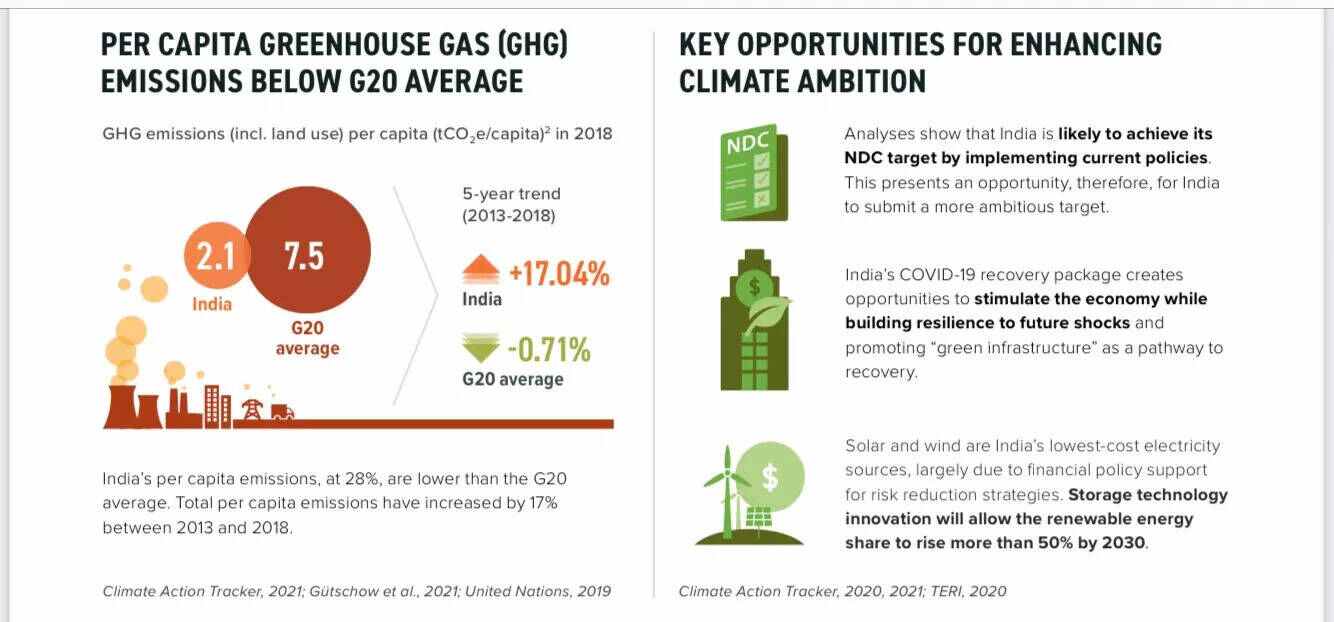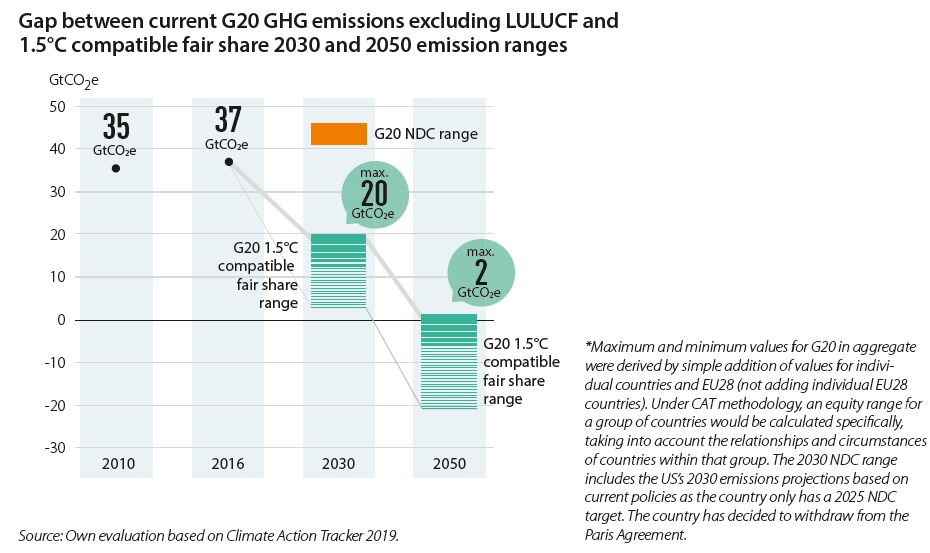India has recently made its compelling presence at G20 summit in Italy.
G20 is an inter-governmental forum composed of 20 major economies of the world i.e., it accounts for 60% of the population of the planet, 80% of world GDP and 75% of the world trade.
The organization saw the daylight back in 1999 in the wake of economic crisis 1997 but began its yearly meet composing the heads and generals of all nations and contributing parties, only around 2008.
Therefore, it is the decision-making body that commands greater importance and can assert some significant changes across the world.
G20 and the warming world:
The G20 leaders have committed in the current summit to limit the global warming to 1.5 degrees Celsius by 2100 as indicated necessary for human sustenance by IPCC.
Any pledge or changes undertaken by these countries are essential as these nations continue to emit nearly 80% of the emissions. Therefore, this summit will also find importance in upcoming COP26.
But what is special is the very fact that they have identified sustainable and responsible consumption as well as working as “critical enablers” for accomplishing the goal in the production process, a component under SDG 12.
Nevertheless, this goal also exerts pressure on developed countries to relinquish their own sense of standard living, so that resources can be used more equitably and inclusively.
All the member countries agreed to “accelerate actions” involving their respective nationally determined contributions and long-term net zero policies in the upcoming decade.
The commitment was also asserted to scale up the required finance for combatting the climate change and the need to mobilize approximately $100 billion annually beginning from 2025.
“We’re proud of these results but we must remember that it’s only the start,” said Mario Draghi, the hosting country Italy’s Prime Minister.
“If we act now and we act together we can protect our precious planet.”
The forum and string of Criticisms:
Though British PM Boris Johnson highlighted a bigger challenge: “The countries most responsible for historic and present-day emissions are not yet doing their fair share of the work”.
“If we are going to prevent COP26 from being a failure, then that must change, and I must be clear that if Glasgow fails then the whole thing fails.”
Though the summit was governed with the current compelling concern of the world i.e., climate change but it fell short of fixing a deadline for becoming Net zero.
G20 exclaimed: “keeping 1.5 degrees within reach will require meaningful and effective actions and commitment by all countries, taking into account different approaches those seen to align the long-term ambition with short- and medium-term goals”.
UN secretary General who attended the summit asserts: “While I welcome the #G20’s recommitment to global solutions, I leave Rome with my hopes unfulfilled — but at least they are not buried”.
G20 and the Indian Farmers:
In the recent forum, India requested the G20 and stressed the need to improve the livelihoods of small and marginal farmers and not just with the bigger economic footprint or prosperous ones.
Farmers with possession of land less than two hectares (five acres) are called small farmers while those having less than a hectare (2.5 acres) are called marginal farmers.
Union Minister Piyush Goyal (also Indian Sherpa to the summit) said: “Livelihoods for small and marginal farmers were at the focus of our discussions and everybody has agreed that improving their livelihood is an important global effort that we all have to put in”.
According to FAO, the percentage of such vulnerable farmers in India stand around 82%, leave alone the landless laborers prevalent in the country. With lands further divided upon generations, these lands become even smaller and it becomes rather more difficult to achieve land-use efficiency.
The Minister added further: “Developed nations have enjoyed the fruits of energy and they will need to go for net zero faster, so that developing nations have some carbon space.”
“For now, there is no adequate technology to absorb large amounts of clean energy into grids. There is a need to look at more technology and innovation before we can identify the year (for achieving net zero)”.
According to ORF (Observer Research Foundation): “Indonesia and India will have to develop a ‘flight plan’ that ensures new initiatives on economic recovery, international tax and climate finance are legislated and executed.”
After an eventful G20 year hosted by Italy, it is time for Asia to continue: G20 presidency to be taken by Indonesia in 2022 and then India in 2023.



